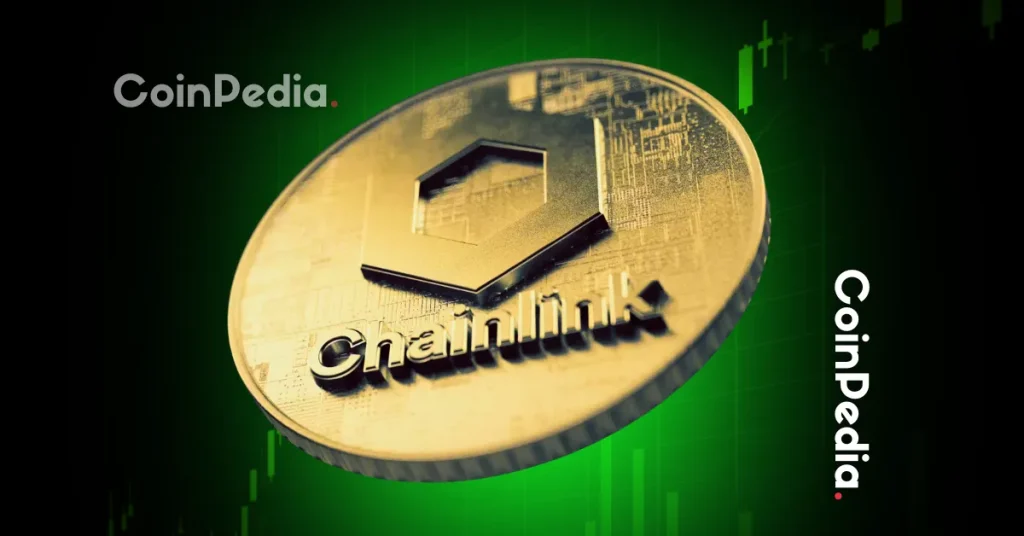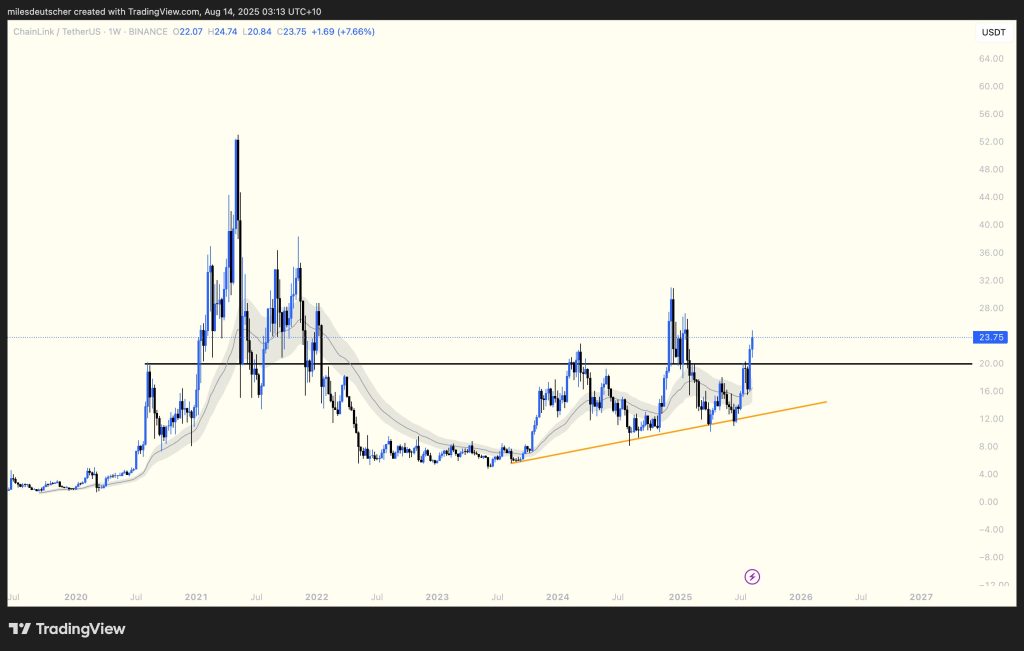Chainlink Price Breaks 8-Month High as Wall Street Backs Link – Here’s What’s Next

The post Chainlink Price Breaks 8-Month High as Wall Street Backs Link – Here’s What’s Next appeared first on Coinpedia Fintech News
As the crypto market gears up for what could be its next major bull run, one asset is quietly positioning itself at the heart of a trillion-dollar shift, Chainlink (LINK). Chainlink’s native token surged to an eight-month high on, extending its weekly gains to 45%.
Despite such a weekly gain, Top crypto analyst Miles Deutscher suggests more gain for Link, citing a growing role in the institutional adoption of blockchain technology.
Why Chainlink (Link) Price is Surging
The biggest reason behind this bullish surge is that Chainlink got a major boost from its new deal with Intercontinental Exchange to bring forex and precious metals pricing data on-chain, a step that strengthens its link between Wall Street and blockchain.
Another big reason is its new “Chainlink Reserve” program will use revenue from services and partnerships to buy LINK, helping keep demand strong.
Adding fuel to the rally, Large holders (whales) have been actively buying LINK. This trend signals strong belief in the token’s potential and adds fuel to the ongoing rally.
Chainlink Emerges as a Top Institutional Crypto
Apart from this, Miles Deutscher points to the rise of tokenized real-world assets (RWAs) as a key driver of Chainlink’s rapid growth. In just two years, this market has jumped from $1 billion to $13 billion, covering everything from tokenized bonds to on-chain real estate.
Right now, Chainlink secures about 84% of all value on Ethereum oracles and $84.65 billion across DeFi, far ahead of competitors.
Its reach spans beyond crypto, with major partners like SWIFT, JPMorgan, Euroclear, and Mastercard already on board.
Chainlink Eyeing $27 Level
As of now, LINK token is currently trading near $23.80, showing a slight dip over the past day. However, it’s still holding strong above its 50-day and 200-day moving averages, which signals ongoing bullish momentum.
In the short term, $24.45 is acting as resistance, while support sits around $22.80. If LINK can break above the $24.45 resistance zone, it could open the door for the next rally towards $27.

Meanwhile, the LINK RSI index is at 52, which is fairly neutral, suggesting more room for the price to climb further.
The post Chainlink Price Breaks 8-Month High as Wall Street Backs Link – Here’s What’s Next appeared first on Coinpedia Fintech News
As the crypto market gears up for what could be its next major bull run, one asset is quietly positioning itself at the heart of a trillion-dollar shift, Chainlink (LINK). Chainlink’s native token surged to an eight-month high on, extending its weekly gains to 45%.Despite such a weekly gain, Top crypto analyst Miles Deutscher suggests …






 (@NYSE)
(@NYSE) 